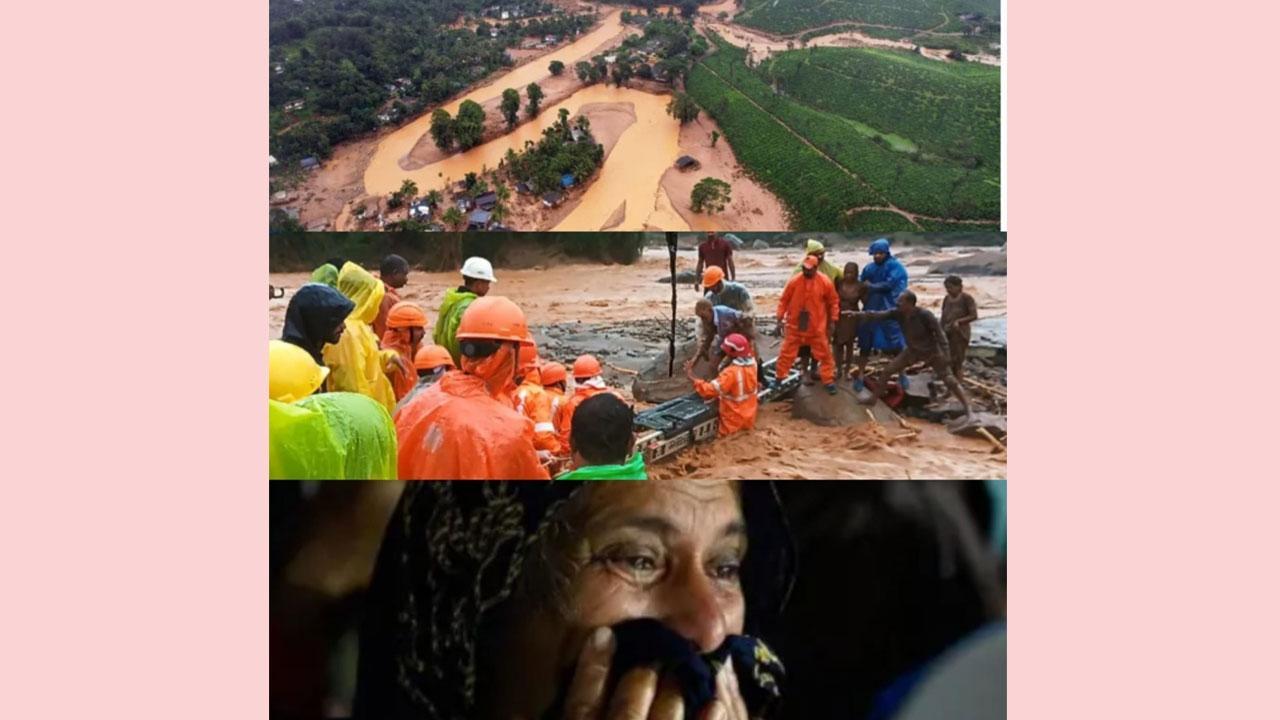Wayanad, a picturesque district nestled in the Western Ghats of Kerala, India, is renowned for its lush landscapes and rich biodiversity.

Wayanad
However, its stunning topography also makes it vulnerable to frequent landslides. The landslides in Wayanad are a result of a complex interplay between environmental conditions and human activities. Understanding these factors is crucial for effective mitigation and prevention.
Environmental Factors:
Geological Factors: The area’s geological complexity, including rock formations prone to weathering and erosion, further exacerbates landslide risks. Fractures and faults in the rock can undermine slope stability.
Rainfall: The region’s heavy monsoon rains play a crucial role in landslides. These torrential rains saturate the soil, compromising the stability of slopes. The excessive water flow can erode the soil, heightening the risk of landslides.
Topography: Wayanad steep inclines and rugged terrain create ideal conditions for landslides. As a region within the Western Ghats, its hilly landscape is naturally unstable and susceptible to shifting under pressure
Human Factors :
Deforestation: The widespread removal of forests for agricultural and developmental purposes has stripped away the natural vegetation that previously helped anchor the soil. Without the stabilizing roots of trees and plants, the soil becomes more vulnerable to displacement, thereby increasing the risk of landslides.
Agricultural Practices: The expansion of agricultural activities, especially on steep slopes, contributes to soil erosion. Additionally, practices such as terracing and the application of chemical fertilizers can exacerbate erosion and instability in the soil.
Construction Activities: Unplanned or poorly managed construction projects, such as road building and housing development, can destabilize slopes. Inadequate drainage systems and improper excavation exacerbate the risk.
Land Use Changes: Transforming forested areas into agricultural or urban developments disrupts the natural equilibrium, thereby elevating the risk of landslides.
Mitigation Measures :
To address the risks of landslides in Wayanad, a comprehensive approach is necessary:
Afforestation: Replanting trees and restoring vegetation can help stabilize the soil and reduce landslide risks. Forest cover plays a crucial role in maintaining soil integrity.
Slope Stabilization: Utilizing engineering methods such as terracing, constructing retaining walls, and installing efficient drainage systems can help reinforce and stabilize slopes, thereby decreasing the risk of landslides.
Regulation and Planning: Adhering to land use regulations and meticulously planning construction and agricultural projects can help maintain slope stability. Adopting sustainable development practices is vital to prevent destabilization.
Early Warning/Risk Assessment Systems: Establishing advanced early warning systems to forecast and track landslide risks is crucial for effective preparedness and mitigation strategies.
Conclusion :
The landslides in Wayanad arise from a combination of natural and anthropogenic factors. The area's steep terrain and heavy rainfall, coupled with deforestation, haphazard construction, and alterations in land use, create a fragile equilibrium that can be easily disturbed. Tackling these challenges necessitates a comprehensive strategy that integrates environmental stewardship with prudent land management. Through the adoption of robust mitigation measures and the promotion of sustainable practices, we can mitigate the effects of landslides and safeguard the region's stunning and diverse landscape.
Author Profile :

Satyasri Akula Lead SAP Consultant | Doctoral Candidate
Satyasri Akula is a seasoned Tech Lead with over a decade of experience in SAP and research academia. Currently serving as a Lead Consultant in the SAP domain, she brings extensive expertise in digital transformation and strategic management. She holds a postgraduate degree in Data Science and Business Analytics from The University of Texas at Austin.
Currently pursuing a Doctorate in the Impact of Strategic Management on Business Growth Powered by Digital Innovation at the Swiss School of Management, Rome, Italy, Satyasri is deeply committed to advancing her knowledge in leadership and organizational development. Her career is distinguished by a focus on mastering effective leadership, and she has made significant contributions to this field through extensive publications in top-tier journals and presentations at numerous international conferences.
Satyasri is also the author of the acclaimed book, Leadership: The Art of Inspiring Others. Her work reflects a profound passion for inspiring and guiding others, evidenced by her robust academic pursuits and professional achievements.
For further insights into her research and publications, visit her ORCID profile: 0009-0005-2269-8862 (https://Orcid.org/0009-0005-2269-8862).
 Subscribe today by clicking the link and stay updated with the latest news!" Click here!
Subscribe today by clicking the link and stay updated with the latest news!" Click here!








